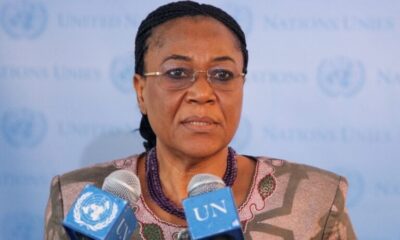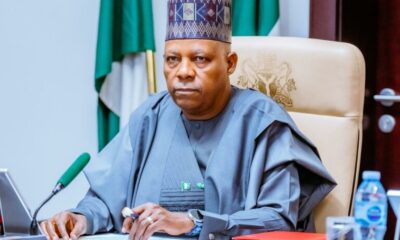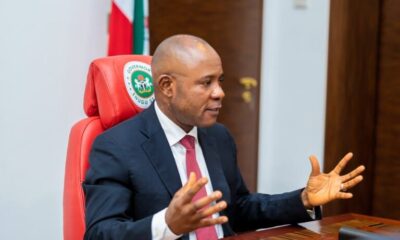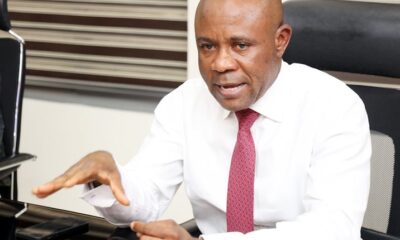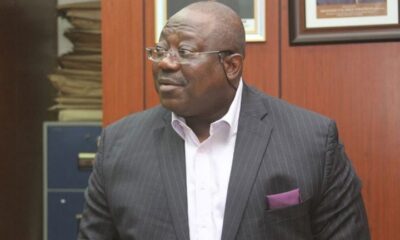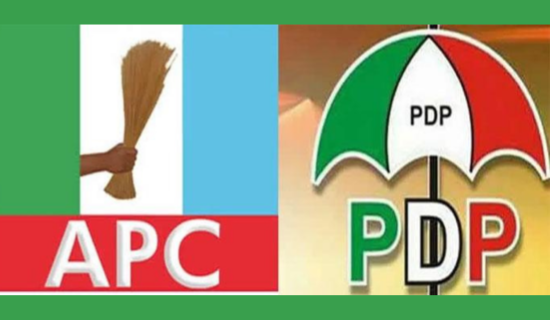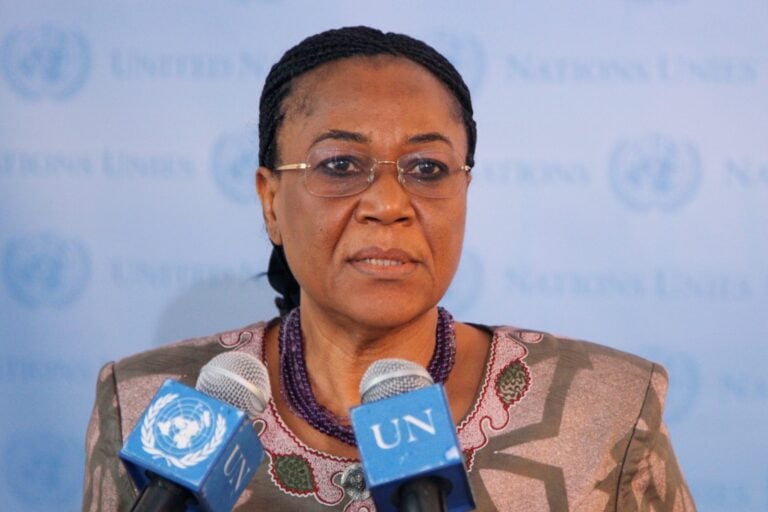As the world marks World Environment Day on June 5, themed “Ending Plastic Pollution,” cities around the globe are taking stock of their environmental footprints. For Lagos, Nigeria’s bustling economic nerve centre and one of Africa’s largest megacities, the issue of plastic waste isn’t just an environmental concern—it’s a fight for survival. Few understand this urgency better than the Lagos State Commissioner for the Environment and Water Resources, Mr. Tokunbo Wahab, whose bold and sometimes controversial reforms are reshaping how Lagos manages its waste.
The statistics are grim but instructive. Lagos generates over 13,000 tonnes of waste daily, with plastic accounting for a significant portion. A joint audit by the Lagos State Government, the United Nations Environment Programme (UNEP), and UN-Habitat in 2023 found that Lagos residents leak about 34 kilograms of plastic into water systems per person annually. That’s roughly equivalent to every Lagosian discarding 10 plastic water bottles into the environment every single day. The audit provided a data-backed wake-up call—one that Mr. Wahab and the Lagos State Government has consistently emphasized.
“The data convinced us to stand up with our political will,” Mr. Wahab has said, emphasizing the administration’s commitment to implementing policy based on facts rather than political convenience.
From Political Will to Policy Action
Since assuming office, Mr. Wahab has done more than sound alarms; he has turned statistics into state action. Perhaps the most symbolic of these steps was the 2024 ban on styrofoam (polystyrene foam), a non-biodegradable material that has choked gutters, polluted canals, and blighted cityscapes for years. This was not a token move. It was the first line in a broader war on single-use plastics (SUPs), with full enforcement of a wider ban slated to begin on July 1, 2025.
This upcoming phase-out will include plastic straws, cutlery, certain types of nylon bags, and polystyrene cups, with other plastics like PET bottles and water sachets being regulated under an Extended Producer Responsibility (EPR) model. It is a sophisticated mix of prohibition, regulation, and corporate accountability, crafted not in haste, but through 18 months of consultations with industry players, including the Food and Beverage Recycling Alliance (FBRA) and Tetra Pak West Africa. This consultative approach reinforces a vital point: that meaningful environmental change demands partnership, not posturing.
But regulation is only half the equation. Recognizing the importance of infrastructure, Wahab brokered a strategic partnership with the Jospong Group’s ZoomLion Nigeria to overhaul the state’s waste logistics. This includes building Transfer Loading Stations (TLS) to reduce pressure on overused landfills like Olusosun and Solous III, and constructing Material Recovery Facilities (MRFs) in Ikorodu and Badagry to sort and recycle plastics. According to the ministry, the initiative is expected to create over 5,000 jobs in recycling and logistics.
The Lagos Waste Management Authority (LAWMA) has also scaled up under his watch. The agency has increased the number of waste evacuation trucks, cleared black spots, and enhanced the performance of Private Sector Participants (PSPs). In collaboration with the Kick Against Indiscipline (KAI) brigade, LAWMA has also ramped up enforcement efforts, prosecuting illegal dumping, open burning, and other environmental violations.
People First: Changing Behaviour, Building Consensus
Recognizing that behavior change is critical, Wahab has led intensive public advocacy campaigns using traditional media, digital platforms, and social influencers. Campaigns fronted by skit makers like Taooma have helped reach younger audiences, while town hall meetings and community outreaches target grassroots buy-in.
Environmental enforcement has also been strengthened. Between January and May 2025, over 6,700 arrests were made for environmental offences, including highway crossing, open defecation, and illegal trading on pedestrian bridges. While critics argue some enforcement tactics are harsh, the commissioner has maintained that without compliance, sustainability remains elusive.
Beyond waste, Wahab’s ministry has linked plastic pollution to wider climate and sanitation concerns. Lagos has cleared over 600 kilometres of drainage channels to reduce flood risks exacerbated by plastic waste. The state has also built 1,710 public toilets, with 250 more under construction via Public-Private Partnerships. Surveillance of private wastewater facilities has also been stepped up, through the Lagos Wastewater Management Office (LASWMO).
Innovative flood-control efforts, such as the Ilubirin pumping station and new river gauging systems, demonstrate Wahab’s systemic approach; integrating solid waste management, sanitation, and urban resilience.
On the urban renewal front, the Lagos State Parks and Gardens Agency (LASPARK) has planted over 54,000 trees, with plans to plant 50,000 more by 2026. The agency is also converting underutilized spaces into public green parks to improve both air quality and quality of life.
These efforts have not gone unnoticed. UNEP and other international bodies have highlighted Lagos as a case study in evidence-based environmental reform. The city’s participation in the Global Plastics Hub ensures it remains aligned with best practices and global innovations in plastic pollution control.
Of course, challenges remain. Illegal trading, low compliance from some manufacturers, and entrenched attitudes among a segment of the population continue to test the administration’s resolve. Still, under Wahab’s stewardship, Lagos is proving that environmental transformation is possible when backed by political will, strategic planning, and community engagement.
As the global spotlight shines on plastic pollution this June 5, Lagos through the decisive leadership of Governor Sanwo-olu and the watchdoging of Tokunbo Wahab is offering Africa’s megacities a practical blueprint for change. The road ahead is long, but with sustained commitment, the state is setting a standard that others would do well to follow.

 BIG STORY4 days ago
BIG STORY4 days ago
 BIG STORY1 day ago
BIG STORY1 day ago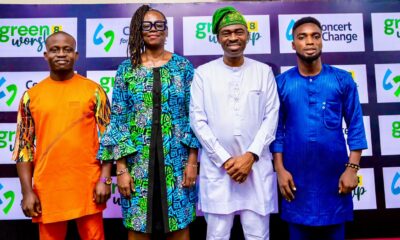
 BIG STORY4 days ago
BIG STORY4 days ago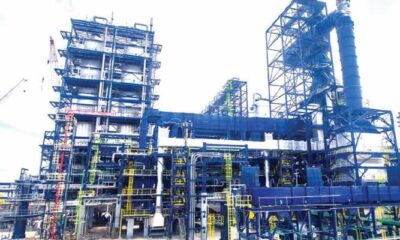
 BIG STORY4 days ago
BIG STORY4 days ago
 BIG STORY1 day ago
BIG STORY1 day ago
 BIG STORY3 days ago
BIG STORY3 days ago
 BIG STORY4 days ago
BIG STORY4 days ago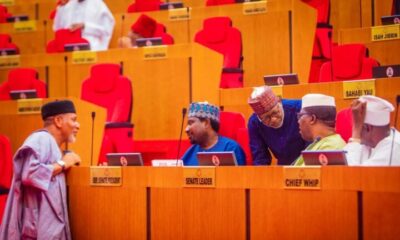
 BIG STORY4 days ago
BIG STORY4 days ago









